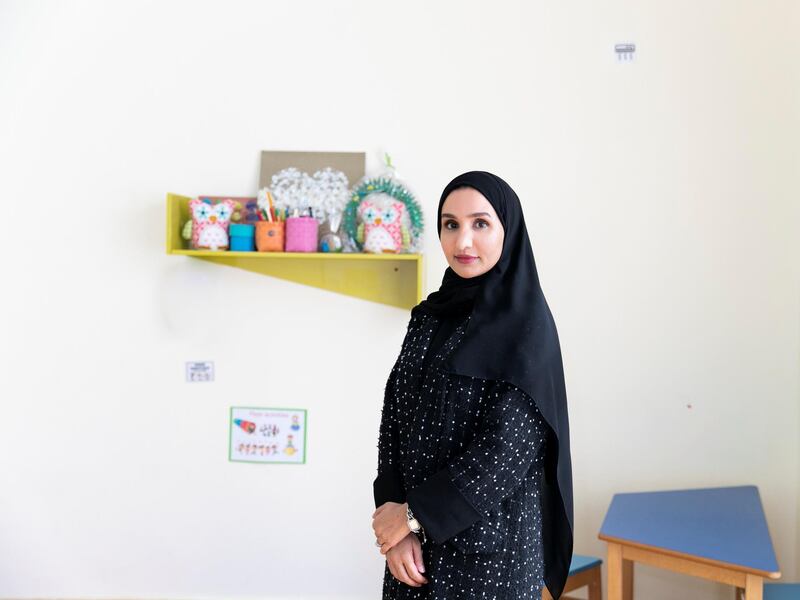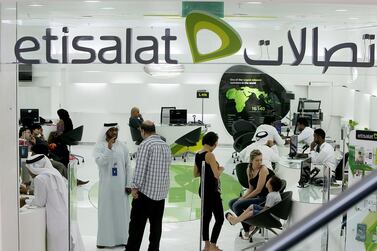Campaigners are urging UAE residents to learn basic sign language to help improve the lives of deaf people living in the country.
They also called on the authorities and telecoms providers to make visual communication easier, including lifting the ban on Skype and other free communication services.
The region is marking Arab Deaf Week, which this year promotes the message that “recruiting deaf people is a community responsibility”.
Across the country, museums, community groups and other public places are hosting initiatives to support the use of sign language, including teaching staff basic phrases.
Bedour Al Raqbani is founder and director of the Kalimati Speech and Communication Centre and serves on the government’s People of Determination Advisory Council. She said the government had pushed for changes to ensure that deaf residents are adequately catered for, while emphasising more could still be done.
She said that while some emirates offered services such as sign-language interpreters, others did not.
“What is lacking for the deaf community is communication – whether through sign language, visuals, or text if sign language is not available,” Ms Al Raqbani said.
She said simple tech applications could be used to help solve the problem.
“If the TRA, Etisalat and du can come up with services to support technology, we will have better communication,” said Ms Al Raqbani, whose young daughter Noora is deaf.
“Skype is blocked, video calls are blocked – these are important forms of communication for the deaf.”
She said Skype was preferable to services that charge users.
“We have many communication platforms that have been blocked that are vital to this community,” she said.
“All we need is simple adaptation – using the technology we have and adapting it to the needs of deaf people.
“The government supports us but it is the actual implementation that is an issue. The situation is stagnant.”
This year, Arab Deaf Week has launched an initiative to ensure people with hearing difficulties are given job opportunities.
That has to be accompanied by better communication and a change in the attitude of the public, Ms Al Raqbani said.
“We have the mandate and the regulations but when it comes to application there are still lots to be done,” she said.
Her organisation would like hearing impairment and deafness to be treated in a similar way to conditions such as autism, which has been the focus of government investment, with campaigns launched to improve awareness.
“For autism, Burj Khalifa lit up and there was a drive to illuminate buildings with blue light, but there has not been anything like that for the deaf,” she said.
“We have to support all people of society, but for the deaf, we are still not there, even though they require the least amount of support.”
Kanza Dodhy, 39, said the Skype ban meant her daughter Mahnoor, 11, was unable to communicate with relatives in Pakistan.
While her family gather around the phone to catch up, she is unable to join in.
“The deaf community depend a lot on visuals and they have to see the person they are speaking to,” Ms Dodhy said.
“They depend on lip reading and sign language. But with the block on video calls, this is not an option.
“If my daughter has a friend who has travelled to another country then they lose contact. She can’t even speak to her grandmother in Pakistan.”
Azza bin Suleiman, a Federal National Council member from Dubai, said: “The deaf need our support, they need the appropriate technologies and qualified interpreters to reach their full potential.”






